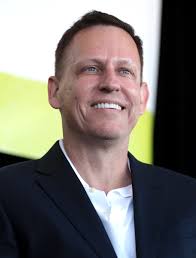
Introduction
Peter Thiel, a prominent venture capitalist and co-founder of PayPal, has played a crucial role in shaping the technology and investment landscapes. His philosophies and investments have sparked conversations not only in the tech industry but also in political and economic spheres. Understanding Thiel’s influence is essential for grasping the shifts in these sectors over the past two decades.
The Rise of Peter Thiel
Born in Frankfurt, Germany, in 1967, Thiel moved to the United States with his family in 1976. He pursued his education at Stanford University where he earned degrees in philosophy and law. In 1998, along with Max Levchin and Elon Musk, Thiel co-founded PayPal, which transformed online payments and led to immense profits when sold to eBay in 2002 for $1.5 billion.
Investment Strategies
Post-PayPal, Thiel founded Clarium Capital, a global macro hedge fund, and became an early investor in several influential tech companies, including Facebook, LinkedIn, and SpaceX. His investment strategies often reflect a contrarian approach, focusing on companies with the potential for significant disruption. Thiel’s philosophy of “creative destruction,” a term coined by economist Joseph Schumpeter, is integral to his investment choices, emphasizing the need to transform industries rather than follow traditional paths.
Political Engagement
Thiel’s influence extends beyond business; he has been an outspoken supporter of libertarian values and has funded numerous political initiatives. His backing of Donald Trump’s presidential campaign in 2016 raised eyebrows and sparked debates within Silicon Valley, where many executives lean toward more progressive ideologies. Thiel’s political contributions are often linked to his belief that technological advancements can solve many of society’s pressing issues.
Current Ventures and Future Outlook
As of 2023, Thiel remains a significant player in the investment sector, focusing on technologies that he believes will shape the future. He is involved with various startups in the fields of artificial intelligence and blockchain technology. Thiel’s investment firm, Founders Fund, continues to back revolutionary ideas that challenge the status quo, fostering innovation that may lead to the next big technological leap.
Conclusion
Peter Thiel’s journey from a tech entrepreneur to a significant investor and political voice illustrates the dynamic interplay of technology, capital, and ideology. His investments and philosophies continue to provoke thought and inspire discussions about the future of innovation and governance. As the world adapts to new technologies and shifts in economic structures, Thiel’s influence is likely to remain a pivotal topic for observers and participants in the fields he engages with.



